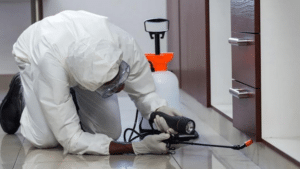HACCP (Hazard Analysis and Critical Control Points) is a globally recognised food safety management system. HACCP plays a vital role in safeguarding consumers and supporting businesses in the food industry.
If you’re a South African food producer, processor, or exporter, HACCP is more than just a regulatory requirement; it is a critical tool for maintaining compliance with local laws and international trade standards. It is also imperative if your business wants to expand into international markets.
Understanding HACCP in South Africa
HACCP is the gold standard for food safety worldwide. It identifies biological, chemical, and physical hazards that could compromise food safety and establishes controls to manage these risks.
Benefits of HACCP Certification
HACCP certification offers numerous advantages for food businesses in South Africa. It ensures food safety, protects consumers from harm, and enhances trust in your business’s brand. It also opens doors to international markets by demonstrating compliance with stringent safety standards.
HACCP certification ensures operational efficiency, reduces waste, and streamlines health and safety processes for your business. Certification ensures alignment with South African food safety laws and mitigates risks, avoiding costly recalls and legal consequences.
HACCP Certification Process in South Africa
Achieving HACCP (Hazard Analysis and Critical Control Points) certification is a crucial milestone for any food business in South Africa. It demonstrates a commitment to food safety, ensures compliance with regulations, and provides a competitive advantage in the market.
Planning for HACCP Certification
The process begins with a thorough evaluation of current food safety practices. This initial assessment identifies potential hazards and areas for improvement, helping your business understand its specific health and safety needs. This step lays the foundation for creating an effective HACCP system tailored to your organisation’s operations.
The next step is creating a robust HACCP plan. This process involves identifying biological, chemical, and physical hazards in your production process and determining Critical Control Points (CCPs), where these risks can be managed. For each CCP, your team must define critical limits and ensure that monitoring procedures are established and corrective actions are planned in case deviations occur.
The plan also includes verification activities to confirm the system’s effectiveness and detailed documentation to maintain accountability. Employee training is vital for the successful implementation of HACCP, and all staff must be educated on the principles of HACCP and their specific roles within the system.
Implementing your HACCP Plan
With the plan in place, your business will implement the HACCP system across all operations. This includes monitoring CCPs, maintaining records, and adhering strictly to the established procedures. During this phase, your company’s focus should be on conducting regular internal audits to assess the system’s effectiveness.
If non-conformities are identified during the audit, corrective actions must be taken promptly. These actions may include revising procedures, retraining staff, or making operational adjustments. Once all issues are resolved, the certification body issues the HACCP certificate, which is typically valid for one year and requires periodic renewals.
Maintaining your Business’s HACCP System
Your business must continuously monitor CCPs, conduct internal audits, and update the HACCP plan to address any changes in operations or newly identified hazards. Additionally, regular training for employees ensures that everyone remains informed about the latest food safety practices.
Common Mistakes in HACCP Implementation
Common mistakes include insufficient training, which leads to poor understanding and application of HACCP principles. Inadequate documentation can also undermine the system’s effectiveness, as it makes it harder to track and verify compliance.
Failing to monitor critical control points regularly is another frequent issue, as it allows potential hazards to go unnoticed. To avoid these pitfalls, your company should invest in thorough training, maintain detailed records, and conduct regular audits to ensure the HACCP system is functioning as intended.
The Importance of HACCP in South Africa
Implementing a robust HACCP system is essential for any business in the food industry. If you lack the expertise or time, Advanced Cleaning Service can assist your business, from start to finish, to ensure you align with international food safety standards. Contact Advanced Cleaning Services to learn how.



